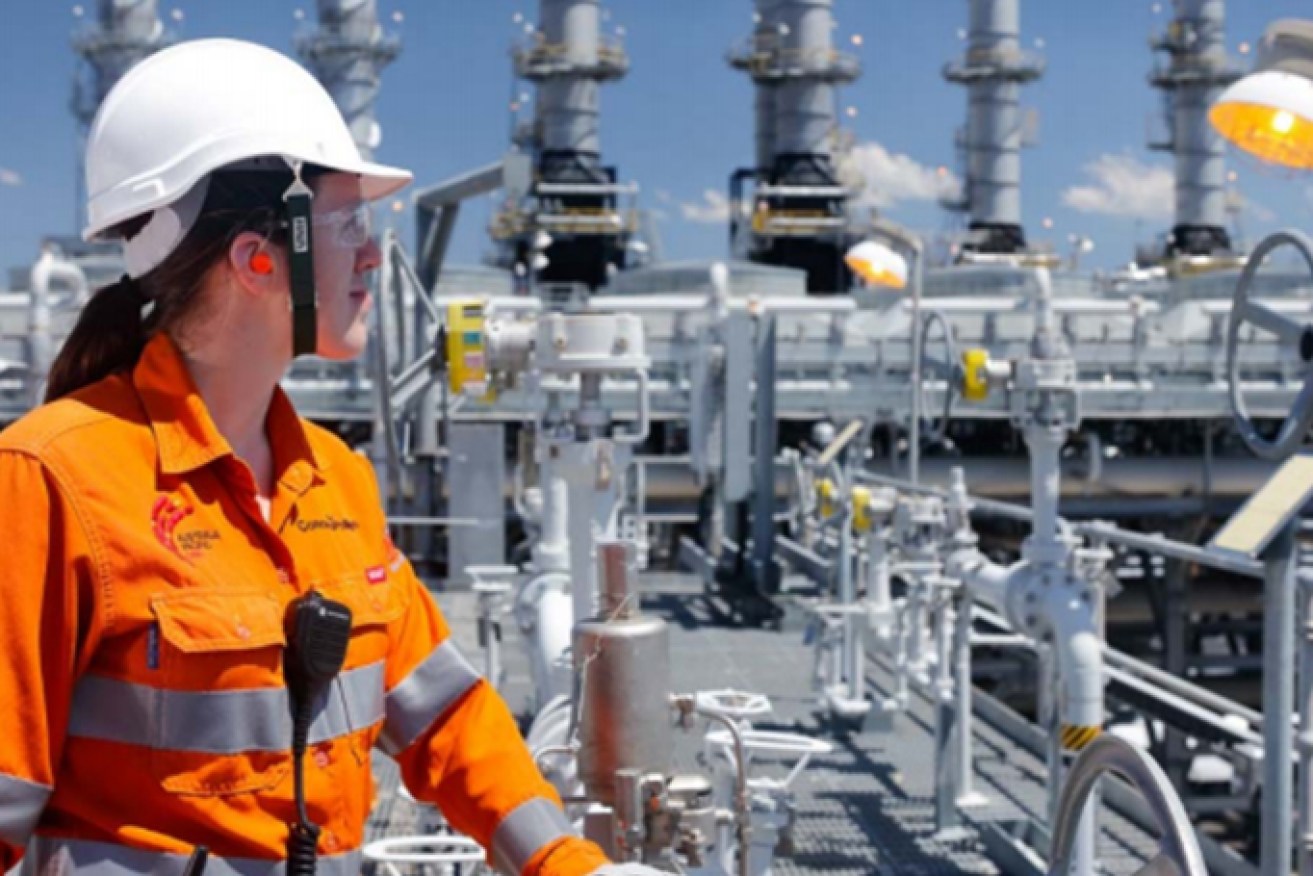Out of gas: Qld dragged into energy crisis – and LNG companies ‘making it worse’
Queensland’s LNG companies had a virtual stranglehold on the gas market which was facing a major supply shortfall next year, according to a highly critical report from the Australian Competition and Consumer Commission.


Queensland's LNG sector facing more criticism and control
As consumers face steep increases in energy costs, the report said there was a risk of business closures and even more price increases because of the predicted shortfall.
It has put pressure on the Federal Government to intervene in the market and force the LNG companies to redirect more uncontracted gas into the domestic market under an agreement known as the Australian Domestic Gas Security Mechanism or “gas trigger”.
Later, the government moved to do just that, extending the life of the gas trigger until January 2030 as it seeks to shore up supply for the domestic market.
Resources Minister Madeleine King said she would issue a notice of intention to use the trigger – which she described as a “blunt instrument” – in 2023.
“These measures announced today will safeguard Australia’s energy supplies,” she told reporters in Canberra on Monday.
“They are designed to work hand in glove with work being done by the energy ministers.
“The Albanese government will do whatever is needed to make sure Australians have ongoing access to the gas and energy sources that belong to the people of Australia.”
But the industry said there was more than enough uncontracted gas to meet demand and gas customers could be assured of adequate supply.
The latest ACCC report said the Australia was facing a gas shortfall in 2023 of up to 56 petajoules and the outlook had “significantly worsened”. Shortfalls are often predicted but the size of the latest forecast was significantly higher than the 2 petajoule forecast previously made.
The ACCC found that the LNG exporters had been net withdrawers of gas from the domestic market since 2021, purchasing more gas from domestic producers than they supplied to domestic customers, which has worsened the gas shortfall.
It also found that the LNG companies were “not engaging with the domestic market in the spirit of the heads of agreement” which committed them to offer the uncontracted gas to the domestic market.
The ACCC found the LNG companies, APLNG (Origin and partners), QGCLNG (Shell and partners) and GLNG (Santos and partners) “had influence over close to 90 per cent of 2P (proved and probable) reserves on the east coast”.
“This may increase the risk of co-ordinated conduct and exclusivity arrangements,” the report said.
Under the agreement reached in 2017 between the Federal Government and the LNG companies, uncontracted gas must be offered to the domestic market under certain terms and conditions.
But the ACCC said it had observed that LNG producers had exported the majority of their excess gas into the spot markets overseas and had forecast to withdraw increasing amounts of gas out of the domestic markets.
ACCC chair Gina Cass-Gottlieb said that to protect energy security on the east coast the ACCC was recommending that the Resources Minister initiate the first step of the Australian Domestic Gas Security Mechanism (the gas trigger),” she said.
“We are also strongly encouraging LNG exporters to immediately increase their supply into the market.
“With the high degree of concentration in this part of the market, we have observed that joint ventures, joint marketing and exclusivity arrangements are contributing to the lack of effective upstream competition in the east coast.
“They may also increase the risk of coordinated conduct and increase the market power of the LNG exporters. This is particularly concerning given the current supply conditions and the reliance on the LNG exporters to meet domestic supply.
“Increasingly, LNG exporters have diverted most of their excess gas to overseas spot markets, with as much as 70 per cent of the excess volume going overseas in recent years.”
The oil and gas industry body, the Australia Petroleum Production and Exploration Association, said the report showed that there was 167 petajoules of uncontracted gas which was more than enough to ensure there was no shortfall.
Acting chief executive Damian Dwyer said there had never been a shortfall and there would not be one next year.
“The report also shows contract prices for gas delivered into the market in 2022 and for delivery into the market in 2023 remained competitive.
“While prices for delivery in 2023 have increased, they remain well below international prices.
“We very much understand our obligation to Australians and the importance they place on gas in running their homes and businesses, and that will be honoured.
“It has been confirmed by AEMO just last week that the reason for pressure on the system is the extraordinary and rapid demand for gas we have seen this winter because of the extreme pressure on the broader energy system.
“There have been major coal-fired generations outages and renewable generation not stepping up when required due to bad weather as well as a cooler winter and immense pressures on the global energy market due to the Russian invasion of the Ukraine.
“The industry stood up when the east coast needed us this winter and we will do so again now as we have done for decades, providing safe and reliable energy supply.”
Dwyer said the report further underlined the need for more supply and investment to continue to ensure energy security.
“Today’s ACCC report underlines what we have been saying for a long time: ensuring more investment in supply with conducive policy settings,” Dwyer said.












